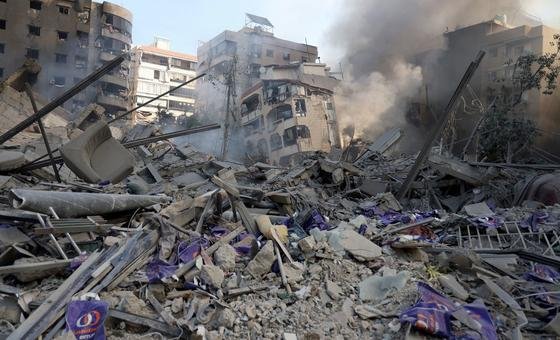The first case was found in Akkar, northern Lebanon.
Dr Tedros Adhanom Ghebreyesus, director-general of the World Health Organization (WHO), said an action plan for surveillance was being implemented, which would include collecting water samples with information on potentially affected people.
Late on Wednesday in Geneva, Dr. Tedros said that Lebanese health authorities had launched a vaccine campaign in August, under which about 3.5 million people would be given doses of the vaccine that protects against cholera.
But the health campaign “has been hampered by an increase in violence”. It should be noted that in the last one month, the fighting between the Israeli army and Hezbollah fighters has intensified.
Millions at risk
Dr. Abdinassir Abubakar, WHO representative in Lebanon, expressed concern that people displaced to escape violence in the south have no protection from cholera.
Remember that cholera thrives in dirty water and poor sanitary conditions. According to officials, around 12 lakh people have been displaced so far.
Dr. Abdinassir Abubakar said cholera can spread very quickly. “Since many communities in the south and Beirut have not been protected from cholera for the past thirty years, the risk of cholera spreading is high.”
The immediate threat of cholera poses another challenge for UN humanitarian agencies and their partners, who are already working in Lebanon amid Israel’s devastating offensive.
Also on Wednesday, there were Israeli attacks in eastern Lebanon and the southern city of Nabati, killing 16 people, including the mayor.
WHO chief Dr. Tedros said the agency was already providing medicine to priority hospitals for those injured and wounded in Israeli bombings.
He said the United Nations Health Organization is working closely with the Lebanese Red Cross and hospitals to provide medical assistance.
“The solution to this suffering is not just humanitarian aid, but peace,” Dr Tedros said.

